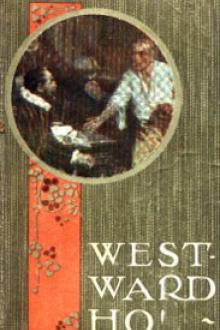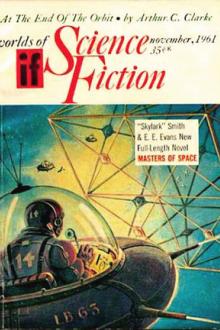Genre Fiction. Page - 226

pter every few days throughout its E-Mail system as a combination of security aware- ness and employee 'perc'. Try it; it works and your employees will appreciate it. Why? Because they'll all talk about it - bringing security awareness to the forefront of discussion.
FEES
Distribution for up to 100 people on a single network: $ 500 (Includes 1 Year subscription to "Security Insider Report.")
Distribution for up to 1000 people on a single network: $ 3000 (Includes 10 1 Year subscriptions to "Security Insider Report.")
Distribution for up to 2500 people on a single network: $ 6250 (Includes 1 Year electronic Corporate site license to "Security Insider Report.")
Distribution for up to 5000 people on a single network: $ 10000 (Includes 1 Year electronic Corporate site license to "Security Insider Report.")
Distribution for up to 10000 people on a single network: $ 15000 (Includes 1 Year electronic Corporate site license to "Security Insider Report.")
Distribution f

ained that you had a vivid dream, in which you saw your cousin stabbed by a stranger whom you did not know, whose face even you never saw. Sir Alan was undoubtedly murdered. The dagger-like attachment to your Japanese sword had been driven into his breast up to the hilt, actually splitting his heart. To deliver such a blow, with such a weapon, required uncommon strength and skill. I think I describe it here as 'un-English.'"
Brett referred to his scrap-book. In spite of himself, he felt all his old interest reawakening in this remarkable crime.
"Yes?" queried Hume.
The barrister, his lips pursed up and critical, surveyed his concluding notes.
"You were tried at the ensuing Assizes, and the jury disagreed. Your second trial resulted in an acquittal, though the public attitude towards you was dubious. The judge, in summing up, said that the evidence against you 'might be deemed insufficient.' In these words he conveyed the popular opinion. I see I have noted here that Miss Margaret H

preliminary examination.
II
The banking-house of Andre Fauvel, No. 87 Rue de Provence, is animportant establishment, and, owing to its large force of clerks,presents very much the appearance of a government department.
On the ground-floor are the offices, with windows opening on thestreet, fortified by strong iron bars sufficiently large and closetogether to discourage all burglarious attempts.
A large glass door opens into a spacious vestibule where three or fouroffice-boys are always in waiting.
On the right are the rooms to which the public is admitted, and fromwhich a narrow passage leads to the principal cash-room.
The offices of the corresponding clerk, book-keeper, and generalaccounts are on the left.
At the farther end is a small court on which open seven or eightlittle wicket doors. These are kept closed, except on certain dayswhen notes are due; and then they are indispensable.
M. Fauvel's private office is on the first floor over the offices, andleads into hi

Meg!"
"Good gracious me!" said Meg presently, "father's crazy. He's put the dear child's bonnet on the kettle, and hung the lid behind the door!"
Trotty hastily repaired this mistake, and went off to find some tea and a rasher of bacon he fancied "he had seen lying somewhere on the stairs."
He soon came back and made the tea, and before long they were all enjoying the meal. Trotty and Meg only took a morsel for form's sake (for they had only a very little, not enough for all), but their delight was in seeing their visitors eat, and very happy they were--though Trotty had noticed that Meg was sitting by the fire in tears when they had come in, and he feared her marriage had been broken off.
After tea Meg took Lilian to bed, and Toby showed Will Fern where he was to sleep. As he came back past Meg's door he heard the child saying her prayers, remembering Meg's name and asking for his. Then he went to sit by the fire and read his paper, and fell asleep to have a wonderful dream, so t

ssed the bottomof the High Street, he came opposite to one of the many tavernswhich looked out upon the river. In the open bay window satmerchants and gentlemen, discoursing over their afternoon's draughtof sack; and outside the door was gathered a group of sailors,listening earnestly to some one who stood in the midst. The boy,all alive for any sea-news, must needs go up to them, and take hisplace among the sailor-lads who were peeping and whispering underthe elbows of the men; and so came in for the following speech,delivered in a loud bold voice, with a strong Devonshire accent,and a fair sprinkling of oaths.
"If you don't believe me, go and see, or stay here and grow allover blue mould. I tell you, as I am a gentleman, I saw it withthese eyes, and so did Salvation Yeo there, through a window in thelower room; and we measured the heap, as I am a christened man,seventy foot long, ten foot broad, and twelve foot high, of silverbars, and each bar between a thirty and forty pound weight.

aid. "But you better untie me. Somebody's liable to stick their nose in and get me killed."
"I'll take the chance. How do we get to the casino?"
"We follow this street. It twists around and goes under a couple tunnels. When we get to the Drunkard's Stairs we go up and it's right in front of us. A pink front with a sign like a big Luck Wheel."
"Give me your belt, Magnan," Retief said.
Magnan handed it over.
"Lie down, Illy," Retief said.
The servant looked at Retief.
"Vug and Toscin will be glad to see me," he said. "But they'll never believe me." He lay down. Retief strapped his feet together and stuffed a handkerchief in his mouth.
"Why are you doing that?" Magnan asked. "We need him."
"We know the way. And we don't need anyone to announce our arrival. It's only on three-dee that you can march a man through a gang of his pals with a finger in his back."
Magnan looked at the man. "Maybe you'd better, uh, cut his throat," he said.
Ill

es. You have matches and a revolver?"
He nodded, quietly showing me first the one, then the other; then with a sheepish air which he endeavored to carry of with a laugh, he cried:
"Have you use for 'em? If so, I'm quite willing, to part with 'em for a half-hour."
I was more than amazed at this evidence of weakness in one I had always considered as tough and impenetrable as flint rock. Thrusting back the hand with which he had half drawn into view the weapon I had mentioned, I put on my sternest sir and led the way across the street. As I did so, tossed back the words:
"We may come upon a gang. You do not wish me to face some half-dozen men alone?"
"You won't find any half-dozen men there," was his muttered reply. Nevertheless he followed me, though with less spirit than I liked, considering that my own manner was in a measure assumed and that I was not without sympathy - well, let me, say, for a dog who preferred howling a dismal accompaniment to his master's music, to keepi

was more astonished than I when it passed beyond the narrowcircle for which it had originally been intended.
My mind made up on this point, I enquired of a leading Melbournebookseller what style of book he sold most of He replied that thedetective stories of Gaboriau had a large sale; and as, at this time, Ihad never even heard of this author, I bought all his works--eleven orthereabouts--and read them carefully. The style of these storiesattracted me, and I determined to write a book of the same class;containing a mystery, a murder, and a description of low life inMelbourne. This was the origin of the "Cab." The central idea i.e. themurder in a cab--came to me while driving at a late hour to St. Kilda,a suburb of Melbourne; but it took some time and much thought to workit out to a logical conclusion. I was two months sketching outthe skeleton of the novel, but even so, when I had written it, theresult proved unsatisfactory, for I found I had not sufficiently wellconcealed the mystery upon wh

Slinkton. There he was, standing before the fire, with good large eyes and an open expression of face; but still (I thought) requiring everybody to come at him by the prepared way he offered, and by no other.
I noticed him ask my friend to introduce him to Mr. Sampson, and my friend did so. Mr. Slinkton was very happy to see me. Not too happy; there was no over-doing of the matter; happy in a thoroughly well-bred, perfectly unmeaning way.
'I thought you had met,' our host observed.
'No,' said Mr. Slinkton. 'I did look in at Mr. Sampson's office, on your recommendation; but I really did not feel justified in troubling Mr. Sampson himself, on a point in the everyday, routine of an ordinary clerk.'
I said I should have been glad to show him any attention on our friend's introduction.
'I am sure of that,' said he, 'and am much obliged. At another time, perhaps, I may be less delicate. Only, however, if I have real business; for I know, Mr. Sampson, how precious business time is,

that ground, for something there is surely underneath that will not suffer the tower to stand?"
The wizards at these words began to fear, and made no answer. Then said Merlin to the king--
"I pray, Lord, that workmen may be ordered to dig deep down into the ground till they shall come to a great pool of water."
This then was done, and the pool discovered far beneath the surface of the ground.
Then, turning again to the magicians, Merlin said, "Tell me now, false sycophants, what there is underneath that pool?"--but they were silent. Then said he to the king, "Command this pool to be drained, and at the bottom shall be found two dragons, great and huge, which now are sleeping, but which at night awake and fight and tear each other. At their great struggle all the ground shakes and trembles, and so casts down thy towers, which, therefore, never yet could find secure foundations."
The king was amazed at these words, but commanded the pool to be forthwith drained; and surely at